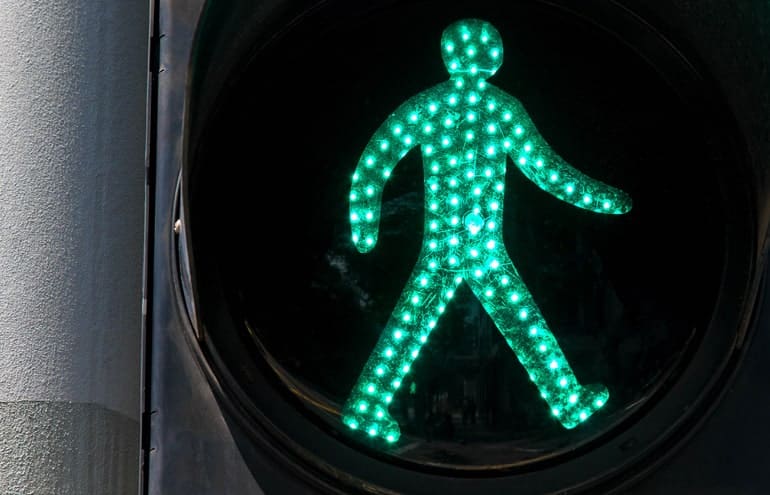How do you know when it is time to quit your job, or your client, or a relationship — or even your dream?

Table of contents
While many of us grew up to the tune of “quitters never win and winners never quit,” we know that’s not exactly true. After all, the world is full of inspiring tales of quitters who’ve come out on top. And the post-pandemic headlines are telling us that plenty of people have decided it’s time for something new, employment-wise:
“The Great Resignation Is Here!”
“Employees Are Rage-Quitting!”
“The Biglaw Lateral Market Is FIRE Right Now“
According to the Bureau of Labor Statistics, in May a record-breaking 700,000 professionals left their job. Maybe you are thinking of quitting your job for one with better pay and lots of perks. Or a less stressful position with less pay but more flexibility. Or an opportunity to create a new business where you’re the boss.
But How Do You Know for Sure It’s Time to Leave a Job?
It’s been a decade since I wrote the following list. It was the tail end of the Great Recession, and I had just decided to leave a position I’d loved for 12 years to focus on Attorney at Work. Most people thought it was nuts, but things turned out OK. The world has changed in unpredictable ways since 2011, but these signs it’ time to quit your job still hold true:
1. Your “job” is disappearing.
This might seem like an easy one. If you’ve concentrated your career in a particular legal specialty or regulatory field and the work begins to dry up, you need to find a new focus. But you’d be surprised how long it can take to figure this out. And how easy it is to rationalize staying put. So your client list is a little smaller than before — at least you still have clients. And everybody knows you shouldn’t make rash decisions when you’re going through trauma. As long as the money still comes in — albeit not as easily as it used to … and as long as your ego is still stroked by the people who know you are “the one” to ask about that arcane area of law, you’re good. Right? Hmm.
2. You feel like a rock star.
Barbara Walters once interviewed Jon Bon Jovi about why he took a sabbatical from performing live with his band: “I had done four albums back to back to back, we lived on the road for 250 show tours at a clip, and we got burned out on it because all the romance was gone … It became a machine. We were supporting 100 people … but they were booking and booking us, and no one was giving us a break to stop.” So are you feeling pushed to perform beyond your breaking point? Working more hours than seems humanly possible to support other people’s dreams — or to just break even? Or to make payments on a vacation condo you rarely had time to enjoy before the pandemic? Only you can know for sure, but if pleasing others is your sole reason for getting up in the morning and it no longer feeds your own soul, it may be time to rethink your work-life model. What did Jon Bon Jovi do? “I fired them. I went home and took a breath … and did a lot of things to start to develop the second chapter of my life.”
3. You are working for — or with — the “worst person in the world.”
We’re not just talking about horrible bosses. You could find yourself in a toxic group or clique, too. You may even have hired the most horrible person yourself, only to find he or she irrevocably changed the dynamics of your team. It happens. At a certain point, you may recognize that you will never be able to please this person, reform them, avoid them or defeat them. In the interests of self-preservation, the best thing may be to move on from your job and find higher ground — behaving impeccably, of course, and taking a good recommendation in hand as you go.
4. It really is making you sick.
Sometimes you have to walk away from the things that cause stress and anxiety in your life. You may sincerely believe the place will fail if you aren’t there to hold it all together. The guilt of leaving those who depend on you may stop you from grabbing the door. But if you find yourself uncontrollably enraged after certain client calls, or physically unable to get out of bed in the morning — if you are finding increasingly inventive ways to procrastinate, or drinking too much or relying too much on pharmaceuticals — you are heading for some sort of collision. And if you can’t hold yourself together, you’re not much help to anybody else. Recognize the signs of depression and burnout. Get help and, if possible, remove yourself from the situation. Will others think less of you if you bail out, take an “easier” job or a leave of absence? Maybe. But consider those who will see you as a role model — someone who recognizes that their health is what’s most important.
5. You’re better than this.
In one of my favorite movies, “Broadcast News,” Holly Hunter tells William Hurt’s news anchor character, “You totally crossed the line between what is ethical and what is garbage!” “It’s hard not to cross it,” he says. “They keep moving the little sucker, don’t they?” Ain’t that the truth. But when you find yourself in a culture where the work ethic awakens that little “uh-oh” voice inside, it is probably time to move on. Besides, if you have noticed transgressions, it is quite likely others have as well. Why risk your career for people you don’t respect?
6. You’re going nowhere fast.
Most of us want to keep learning and advancing in our careers. If you are boxed in and there is no path for moving up or even sideways to a different group or department — if the assignments aren’t getting any better, no matter the glowing reviews and the countless times you’ve asked — then listen to what they are telling you. It’s not always you — or even a “worst person” or sexism or racism or ageism holding you back. (OK, sometimes it is.) Sometimes it’s just the job. So, if you find yourself stuck doing the same thing, over and over, and silently screaming every time a new matter or assignment hits your desk, that is a pretty good sign it is time to quit and move along.
Stick a Fork in It
What do I say now when people ask how I was able to give up a really good gig, surrounded by wonderful people, to take a chance on an idea?
I won’t lie. It was hard to give up the security, and it was hard to no longer be a part of a community. It was especially hard to walk away from something I’d helped build into something wonderful.
But I was reasonably sure it was the right thing to do. Pretty sure my physical well-being was more important than my need to be the fixer or my loyalty to an organization. But how did I know for sure? The test came when I was offered a chance to take back the job. My immediate, gut response was no! I had already imagined my life going forward and it was terrifying. But going backward? Then I knew for sure. Stick a fork in me, I was done.
If Not Now …
Surviving the pandemic begs a similar question, as the world opens up and employers set expectations for returning to the office: Will you go back?
Some will gladly — joyfully — return to a career and office that looks exactly like it did in the summer of 2019. Some hope to negotiate new ways to continue in the same job or career — hybrid, part-time, whatever. And some are ready for something entirely new.
Quitting is pretty tough for those of us who believe our highest accomplishment is to dig in our heels and persevere. But after the year we’ve just had? Just for a moment, entertain the idea that quitting your job may actually be what you need. Ask and you may have your answer.
Illustration ©iStockPhoto.com
Subscribe to Attorney at Work
Get really good ideas every day for your law practice: Subscribe to the Daily Dispatch (it’s free). Follow us on Twitter @attnyatwork.





















